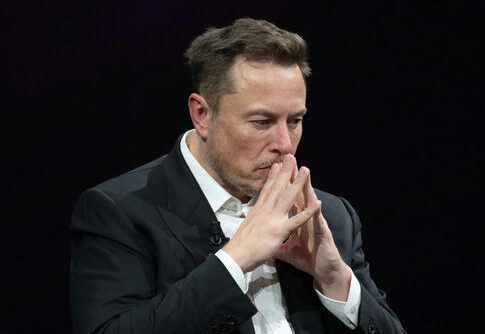When the architect of a government department is also its largest political donor, can we really expect anything other than chaos and conflict?
Elon Musk’s Influence and DOGE’s Creation
Elon Musk, the tech mogul synonymous with innovation, is now a household name in political circles, not just for his business acumen but for his audacious involvement in shaping the U.S. government. After Trump’s 2024 victory, Musk didn’t just donate a staggering $277–288 million to support the Republican campaign; he became the brain behind the Department of Government Efficiency (DOGE). This new department, established to slash federal spending and shrink the workforce, has been at the heart of controversy since day one.
Musk’s appointment to lead DOGE, alongside key adviser Vivek Ramaswamy, seemed almost inevitable given his significant contributions to the Trump campaign. However, this move has raised eyebrows due to the potential conflicts of interest, considering Musk’s vast business empire, which includes Tesla and SpaceX. The department’s mandate to offer buyouts and streamline operations has clashed with several federal departments, especially the Pentagon, leading to recent high-profile disputes.
Pentagon Tensions and Internal Disputes
The friction between DOGE and the Pentagon reached a boiling point with a confrontation involving DOGE officials Yinon Weiss and Justin Fulcher. This incident allegedly escalated to the point where Pentagon police were reportedly called, though Fulcher later claimed no officers appeared. Defense Secretary Pete Hegseth, tasked with overseeing DOGE’s integration with the Pentagon, reprimanded Weiss, questioning the department’s methods and authority.
🚨 EPSTEIN, MAGA, ELON & TRUMP – BREAK THIS DOWN…🚨
Elon Musk and his Simps want to criticize President Trump’s DOJ over Epstein?
The same Elon who has owned X for YEARS and still hasn’t stopped child sexual exploitation on his own platform?
Let’s look at undeniable facts:… pic.twitter.com/jCD6QEQyY6
— ALPHAWARRIOR (@xAlphaWarriorx) July 13, 2025
Following the incident, Weiss has left DOGE, while Fulcher remains a senior adviser, albeit relocated within the Pentagon. Hegseth’s frustrations with DOGE’s operations reflect broader tensions between the traditional Pentagon leadership and the aggressive cost-cutting agenda of DOGE. These internal disputes have not only led to leadership changes but have also raised questions about DOGE’s long-term viability and effectiveness.
The Broader Implications of Musk’s Influence
Musk’s dual role as a political donor and a government policy-maker is unprecedented and raises critical questions about the concentration of power and the potential for conflicts of interest. Supporters argue that DOGE’s mandate is necessary to curb government bloat and improve efficiency. Critics, however, warn of the dangers of such a substantial private-sector influence in public administration, suggesting it sets a perilous precedent for future governance.
Adam schiff: What are you hiding, Donald? Time to release the Epstein files
Where Is It,Elon Musk Questions Missing Epstein Evidence Hours After Trump Fires Prosecutor
Trump's DOJ just fired Maurene Comey, who prosecuted Ghislaine Maxwell and worked on the Federal Epstein Case pic.twitter.com/uHfqTysMGk
— Sumit (@SumitHansd) July 17, 2025
The internal instability at DOGE and the Pentagon, coupled with Musk’s significant sway over government operations, has implications for national security, defense operations, and the federal workforce. The ongoing scrutiny of Musk’s role and DOGE’s methods reflects heightened concerns over campaign finance, government reform, and the delicate balance between public and private sector interests.

